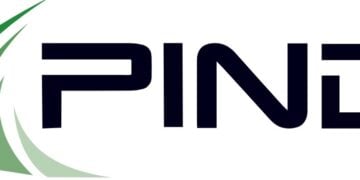Imagine if Nigeria had built the much-needed buffers by (rightly) diverting her exports to survive economic shocks from global crises such as the COVID-19 pandemic and the war in Ukraine. Think of a situation where Nigeria had a production-based rather than the current consumption-based economy. That would have given value to her local currency – naira and maybe put it at per with major currencies of the world because of the high volume of demand that would been trailing it.
What if Nigeria had built a working system where institutions like the Federal Inland Revenue Service (FIRS), Nigeria Customs and other revenue generating agencies can track down defaulters with a hit of a computer button. Now, what if the largest African economy was refining its crude domestically for local demand and exports? Think of the byproducts, their value and contribution to the economy – job creation, security and revenue for fiscal infrastructure.
Of cause, that would have probably helped to avoid the subtle fight between the Monetary Policy Committee of the Central Bank of Nigeria (CBN) and the Debt Management (DMO) over Nigeria’s rising Eurobond debt. The agencies have been at daggers drawn since the last one week.
Members of the MPC had in exercise of their mandate expressed worries over the country’s ability to service its debt, especially the Eurobonds component of the debt stock in the face of the high interest costs, with the associated exchange rate risks.
For the members, Nigeria’s outstanding $15.918 billion Eurobonds debts should be a cause for concern, especially as the appetite doesn’t seem to slow down on the part of the fiscal authorities. Particularly worrisome for some of the monetary authorities is the fact that despite the current state of things, the Eurobonds debt is increasing, while in their observation, concessionary loans are being minimized, instead of the opposite.
“The unexplained government preference of Eurobonds at high interest costs, with the associated exchange rate risk may likely hurt Nigeria sooner than anticipated,” an MPC Robert Asogwa said to jumpstart what is not very appealing to the debt office.
But the DMO would not allow the surface to dry before schooling Asogwa on specific issues, especially about concessionary loans and their availability for fiscal projects. The DMO thinks Asogwa’s statement were made without due consideration of the government’s borrowing needs as captured in the annual budgets, Medium-Term Expenditure Framework (MTEF), as well as, the debt management strategy. In response to the MPC members, DMO said while loans from concessional sources such as the International Development Association (an arm of the World Bank) are relatively cheaper, “they are limited in amount. In addition, they are not available for financing infrastructure and other capital projects.” That partly explains why the federal government borrow through Eurobonds.
Earlier, Asogwa pointed to the fact that “The escalating fiscal sector deficits with the attendant rising debt ratios are part of the weak links in the domestic economic environment.”
The concerns are right, anyway. Nigeria is being mentioned by the International Monetary Fund (IMF) as one of the countries that may likely move into debt distress, given the staggering $100.07 billion dollars of public debt stock as at March 31, 2022.
Asogwa found support in Professor Festus Adenikinju, another member of the MPC who said it was important for the federal government to restraint the appetite for debt. Hear him: “I am worried that Nigeria is not able to benefit maximally from the current upsides in the global oil market. We were not only unable to ramp up our production levels to meet the OPEC quota, no accretion to foreign reserves is also taking place, and government deficit and public debts are going north at a time we should be writing down our debt profiles and even building up a buffer for the inevitable raining days ahead.”
But there is a point of agreement between the debt office and Asogwa. While he noted that the revenue growth in a period of expanding government expenditures has continued to soar the budget deficit levels in the first quarter of 2022 for Nigeria, DMO restated that the sustainability of Nigeria’s public debt is dependent on significant enhancement of government revenues while continuing to explore more concessional and semi-concessional sources for its borrowing and refinancing needs. That’s a general agreement.
At the last check, Nigeria’s debt-to-revenue ratio stood at 83 per cent. That explains why the DMO continues to advocate generation of more revenues to reduce fiscal deficits in the annual budget.
Beyond the fact that Eurobonds are being used as alternative source of raising funding for infrastructure, the DMO is also saying that the size of new borrowings in the annual budgets over the years, would crowd out the private sector from the capital market and raise borrowing rates if government decides to raise all the funds from the domestic market.
“Consequently, some part of the required funding has to be raised externally. While loans from concessional sources such as the International Development Association (an arm of the World Bank) are relatively cheaper as stated above, they are limited in amount.
tion, they are not available for financing infrastructure and other capital projects,” it stated.
If you ask the DMO, there is nothing to fear with regard to the issue of Eurobonds likely to lead to debt distress. Data from the World Bank show that compared to a number of advanced and developing countries who have higher public debt to GDP Ratios than Nigeria, Nigeria has a much lower revenue to GDP ratio.
While the concerns and justifications hold water on different fronts, Nigeria obviously needs to diversify her economy through boosting exports of high-value services, expanding private businesses’ access to financial services, tapping into new financial technologies and implementing effective policies, as was recommended for Africa in a recent report by the United Nations Conference on Trade and Development.




